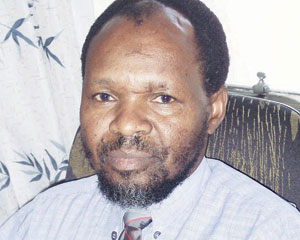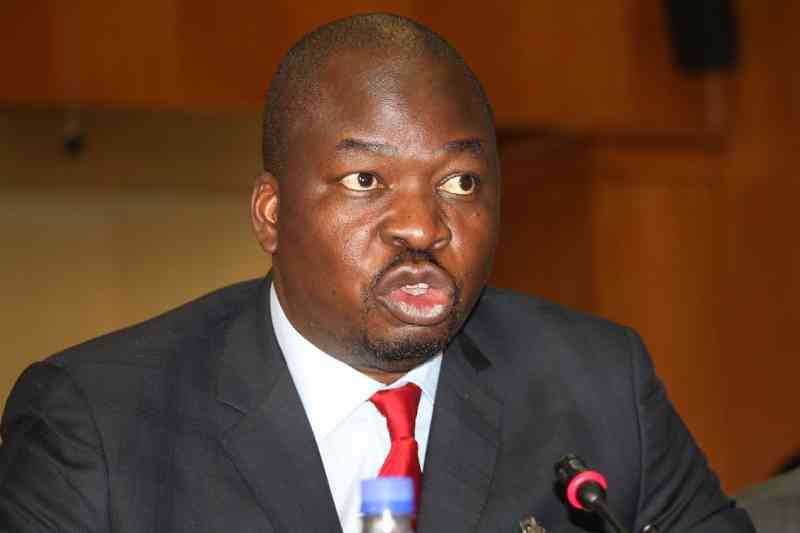
PRESIDENT Robert Mugabe’s new cabinet must make a paradigm shift in order to reverse the slowdown of the economy and deliver essential services to the people, analysts have said.
BY PATRICE MAKOVA
They said the Zanu PF government must swallow its pride and climb down on hardliner and populist policies, which do not augur well for the economic development of the country.
Director of the Labour and Economic Development Research Institute of Zimbabwe (Ledriz), Godfrey Kanyenze said the government should stop mourning over the sanctions and instead put reforms at the centre of its agenda.
He said people were now virtually depressed because of the economic outlook, yet a liberation party [Zanu PF] won elections resoundingly on July 31 on the back of promises to deliver.
“The would-be dragon slayer appears to be falling on his sword. You are saying the enemy is holding us but let’s do away with excuses and take 100% responsibility for our destiny,” Kanyenze said. “We cannot outsource development and make all sorts of excuses for our own failures. None but ourselves will take us forward.”
He said reforms should focus on minerals, governance and the way the country does its business.
Kanyenze said transparency, accountability and ethics were critical if government is to serve the interests of the people.
- Chamisa under fire over US$120K donation
- Mavhunga puts DeMbare into Chibuku quarterfinals
- Pension funds bet on Cabora Bassa oilfields
- Councils defy govt fire tender directive
Keep Reading
He said resources of the country needed a transparent mineral framework to ensure that they benefit the majority.
“Rent-seeking, predatory behaviour, state capture and corruption in general must be put to a stop. The government is there to serve the people and not the other way round,” said Kanyenze.
He said given the polarised political environment in the country, there was need for the government to bridge the divide and come up with national ethos that united people.
Kanyenze said through social dialogue, people can share the challenges and mobilise the potential vested in various stakeholders.
He said the country needed to engage the international community to deal with the over US$10,7 billion debt.
The Ledriz director said the country cannot access new lines of credit because of arrears to institutions such as the International Monetary Fund.
Kanyenze said in order for the country to attain developmental state status, it has to effectively meet the basics required by the people such as access to clean water, food, education, health, safe and secure transport, housing, employment and other basic utilities.
“When you do not have these things, in development, this is called a failed state,” he said.
Kanyenze said Zimbabwe cannot compete because of its informalised economy, obsolete plant machinery and dilapidated infrastructure such as the rail and road network.
Development economist Prosper Chitambara said government has to engage key stakeholders, such as business and labour.
He said it was only through social dialogue that government can harness the skills and experience of commerce and industry.
Chitambara said the government committed itself to meeting certain benchmarks after talks with the IMF. These include a staff monitoring programme and enacting a new diamond act to bring transparency in the way revenues are utilised.
“The government has already missed some of the deadlines. It is also not clear if government is committed to staff monitoring,” he said.
University of Zimbabwe political science lecturer, Eldred Masunungure said no business can thrive in an environment that is clouded in uncertainty.
He said the intense talk about elections, before and after the July 31 polls, generated a lot of uncertainty with the economy now dancing to the tune of the politics.
“When the politics is unstable, the ripple effect is seen on the economy. We need to put our politics right and all the other things will follow,” he said. Masunungure said the indigenisation policy scared many current and prospective investors.
He said there was still uncertainty, lack of coherence and clarity in terms of the direction the country was going.
“These are the ingredients that create the conditions that attract or deter investors. People easily get scared by the wrong language at the wrong time. Wrong language was prevalent before the collapse of the GNU,” said Masunungure.
But Zimbabwe National Chamber of Commerce (ZNCC) deputy president Davis Nerupiri said high production costs and cheap imports were a major hindrance to the revival of industry.
He said companies were paying high duty on raw materials, yet the same imported products they were competing with attracted low duty.
“Our industries are in intensive care and they need the field to be levelled, in order to compete with imported products,” said Nerupiri.
He said industries were running below capacity because of competition from cheap imported genetically modified agricultural products, such as beans and chickens.
Nerupiri said power cuts of up to eight hours per day had a huge bearing on production costs. He said workers were being paid for doing nothing, while the use of generators significantly increased overheads.
Nerupiri said the country was importing more than it was exporting.
“People have no appetite to export because there is no incentive. There is need for the government to put in place incentives so that companies have the appetite to export,” he said.
The government has since said it will launch a new economic blueprint, the Zimbabwe Programme for Socio-economic Transformation — which is expected to boost Zimbabwe’s economic recovery and growth.
But analysts said the country has produced over 10 of such documents in the past two decades or so, with virtually none of them being implemented. Stakeholders have also not been consulted on the latest document.
Govt must invest in research and development: Hamauswa
Political scientist, Shakespeare Hamauswa said cabinet must be practical, with every member hitting the ground running in order to increase the fortunes of the economy.
He said many companies have now closed shop, with the country now importing products such as shoe polish and match sticks after their manufacturers relocated to South Africa.
“There is need to go on the ground to find out what is happening. This can only be done if there is investment in research and development,” said Hamauswa. “Without research, the government cannot come up with a viable policy with corrective measures.”
Hamauswa said the government must also swallow its pride and re-engage with western countries which imposed sanctions, in order to attract more serious investors.











